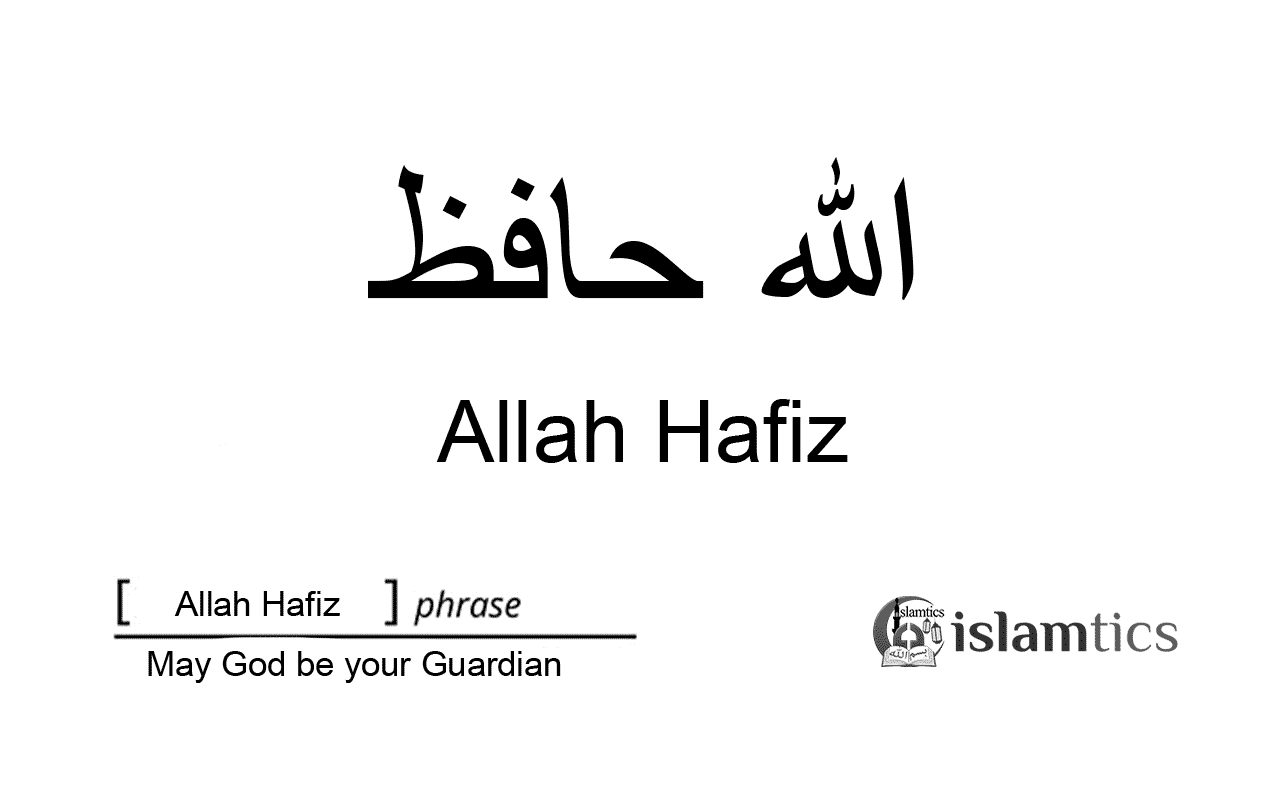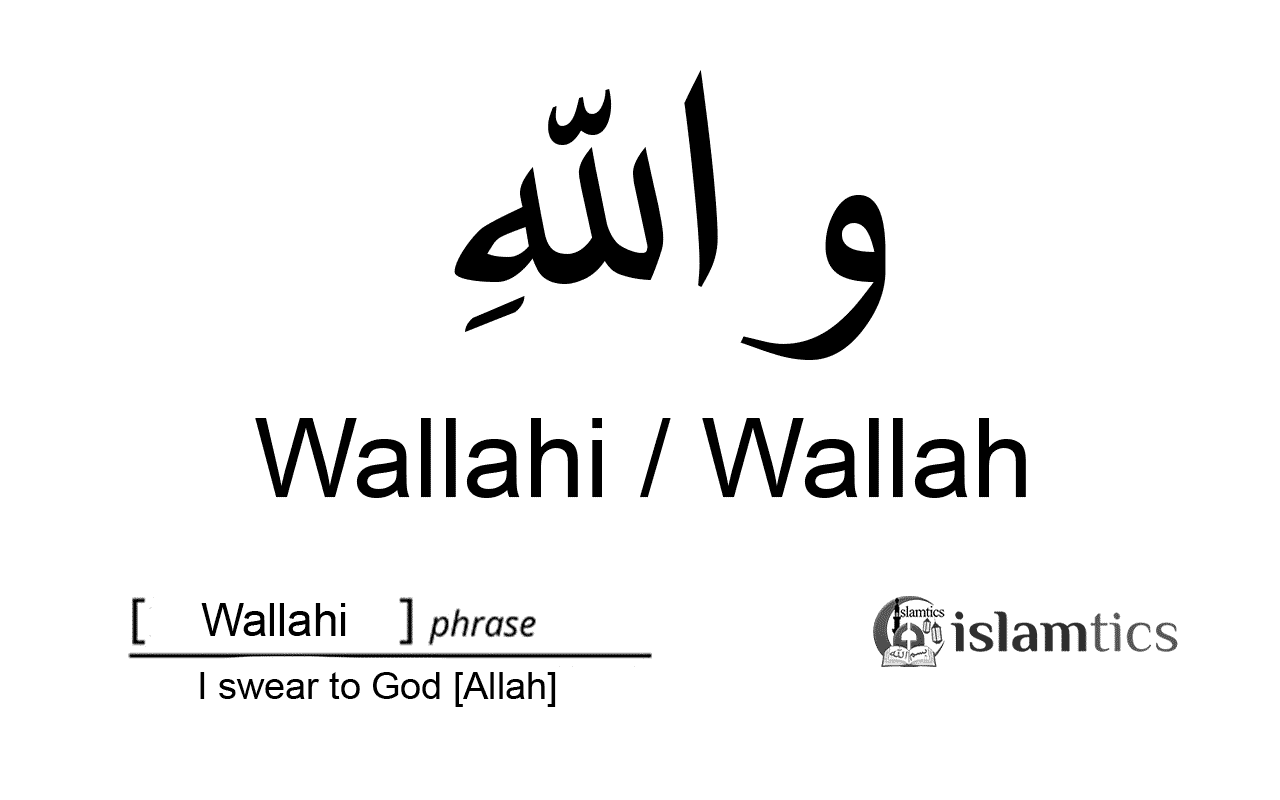Wallahi meaning has become a popular topic among those interested in Arabic culture and Islamic traditions. As an Arabic phrase often heard in conversations, it carries a deep sense of truthfulness and sincerity. Whether you're learning Arabic or simply curious about this term, you'll discover its significance and usage in everyday life. This phrase is more than just words; it's a reflection of faith and honesty.
For many, understanding the meaning of Wallahi helps bridge the gap between cultures. It's a term that highlights the importance of truth and commitment in Arabic-speaking communities. Whether you're new to the language or already familiar with it, exploring the phrase's origins and applications can provide valuable insights. Let's take a closer look at what makes Wallahi such a powerful expression.
As we delve into the world of Arabic expressions, you'll find that Wallahi stands out for its simplicity and depth. It serves as a testament to the values upheld by those who use it. In this article, we'll explore the meaning behind Wallahi, its historical roots, and how it fits into modern conversations. Let's uncover what makes this phrase so meaningful to so many people around the globe.
What Exactly is Wallahi Meaning?
Alright, so let's start by breaking down what Wallahi really means. In Arabic, Wallahi translates to "by Allah" or "I swear by Allah." It's kind of like saying "I swear to God" in English. This phrase is used to emphasize the truthfulness of a statement. When someone says Wallahi, they're not just making a casual remark; they're putting their word on the line, so to speak. It's a way of saying, "Hey, what I'm saying is absolutely true." That's why it carries such weight in conversations.
So, you know how sometimes people use oaths to make their words more believable? Wallahi works in a similar way. It's not just about saying something; it's about standing behind what you're saying. In some respects, it's like giving your word of honor. This phrase is often used in informal settings, but its meaning is still taken seriously. People really do mean it when they say Wallahi, which is why it's so respected in Arabic-speaking communities.
How Does Wallahi Meaning Relate to Arabic Culture?
Now, let's talk about how Wallahi fits into Arabic culture. You see, Arabic culture places a high value on truth and integrity. Wallahi meaning ties directly into these values. When someone uses this phrase, they're essentially saying, "I'm so sure about what I'm saying that I'm willing to back it up with my faith." That's a pretty big deal, right? It's almost like making a promise that you'll keep, but with a spiritual twist. This is why Wallahi is so commonly used in conversations where honesty is key.
By the way, Wallahi meaning isn't just limited to religious contexts. Sure, it has its roots in Islamic tradition, but it's also used in everyday life. People might say Wallahi when they're trying to convince someone of something or when they want to express how strongly they feel about a topic. It's like a verbal stamp of authenticity. This phrase helps strengthen the connection between words and actions, which is a core aspect of Arabic culture.
Where Does Wallahi Meaning Come From?
So, how did Wallahi meaning come to be? Well, it actually comes from the combination of two words in Arabic: "wa," which means "by," and "Allah," which is the Arabic name for God. Together, they form Wallahi, which literally translates to "by Allah." This phrase has been around for a long time and has been used by many important figures in Islamic history. For example, the Prophet Muhammad himself used Wallahi to emphasize the truth of his statements. It's like a historical tradition that continues to this day.
Anyway, the origin of Wallahi meaning ties directly to the importance of truth in Islamic teachings. When you think about it, it makes perfect sense. In a culture where faith plays such a big role, having a phrase that ties truth to spirituality is incredibly powerful. Wallahi meaning serves as a reminder of the values that underpin Arabic culture. It's not just about saying something; it's about living by your words.
Why Do People Use Wallahi in Conversations?
So, why do people love using Wallahi in their conversations? Well, it's more than just a fancy way of saying something. When you say Wallahi, you're adding a layer of seriousness to your words. It's like saying, "Listen up, because what I'm about to say is super important." People use Wallahi when they want to make sure others believe them. It's a bit like giving your statement an extra boost of credibility. That's why it's so popular in both formal and informal settings.
Let's think about it this way. Imagine you're in a heated discussion, and you really want to get your point across. You could just say what you're thinking, or you could say Wallahi to show how serious you are. It's almost like adding a verbal exclamation mark to your statement. People tend to pay more attention when someone says Wallahi because they know the person means business. This phrase helps cut through the noise and get straight to the heart of the matter.
What Does Wallahi Meaning Tell Us About Faith?
Alright, so let's dive a little deeper into what Wallahi meaning reveals about faith. You see, when someone says Wallahi, they're essentially calling upon their faith to back up their words. It's a way of saying, "I'm so sure about this that I'm willing to involve my spiritual beliefs." That's a pretty big deal, right? It shows how deeply faith is woven into the fabric of Arabic culture. Wallahi meaning isn't just about saying something; it's about living by your faith.
So, in some respects, Wallahi serves as a bridge between the spiritual and the everyday. It's like a reminder that your words should align with your beliefs. This is why it's so respected in Arabic-speaking communities. People know that when someone says Wallahi, they're not just throwing words around. They're making a commitment to truth and integrity, which are core aspects of faith. Wallahi meaning highlights the importance of living by your values, no matter the situation.
How Can You Use Wallahi Meaning in Everyday Life?
Now, let's talk about how you can use Wallahi meaning in your own life. You don't have to be a religious scholar to incorporate this phrase into your conversations. Honestly, anyone can use Wallahi to emphasize the truthfulness of their statements. For instance, if you're trying to explain something important to a friend, you could say Wallahi to show how serious you are. It's a simple yet powerful way to add weight to your words.
Of course, it's important to use Wallahi meaning with care. You don't want to throw it around casually, because it does carry a lot of significance. Instead, reserve it for moments when you really want to make an impact. For example, if you're in a situation where honesty is crucial, saying Wallahi can help reinforce your point. It's a way of saying, "Hey, I mean what I'm saying, and I'm willing to back it up." This phrase can be a valuable tool in your conversational toolkit.
What Questions Do People Have About Wallahi Meaning?
So, what are some common questions people have about Wallahi meaning? Well, one question that often comes up is, "Can non-Muslims use Wallahi?" The answer is yes, but it depends on the context. If you're speaking with Arabic-speaking friends and want to show respect for their culture, using Wallahi can be a nice gesture. However, you should be aware of its significance and use it appropriately. It's not just a casual phrase; it carries a lot of weight.
Another question people ask is, "Does Wallahi meaning change depending on the situation?" Actually, the core meaning stays the same, but the way it's used might vary. For instance, in formal settings, Wallahi might be used more sparingly, while in informal conversations, it might be used more frequently. It's all about understanding the context and using the phrase in a way that makes sense. That's why it's helpful to learn more about Wallahi meaning before using it in your own conversations.
Is Wallahi Meaning the Same as Other Swearing Expressions?
So, is Wallahi meaning similar to other swearing expressions? Well, kind of. While it does serve a similar purpose of emphasizing truthfulness, Wallahi meaning has a unique twist. Unlike some swearing expressions that might be considered rude or disrespectful, Wallahi is rooted in faith and respect. It's a way of saying, "I'm so sure about this that I'm willing to involve my spiritual beliefs." That gives it a different tone compared to other expressions.
Anyway, the key difference is that Wallahi meaning is tied to faith, which adds an extra layer of seriousness. When someone says Wallahi, they're not just making a casual oath; they're making a commitment to truth. This makes it stand out from other expressions that might be used more casually. Wallahi meaning reflects the values of honesty and integrity that are so important in Arabic culture. It's a phrase that carries a lot of weight, and that's what makes it so special.
How Does Wallahi Meaning Compare to Other Arabic Phrases?
So, how does Wallahi meaning stack up against other Arabic phrases? Well, there are a few phrases that serve similar purposes, but Wallahi tends to stand out. For example, you might hear people say "Wallahi akid," which means "I swear to Allah, for sure." This adds an extra layer of emphasis to the statement. Another common phrase is "Inshallah," which means "if Allah wills it." While both phrases involve faith, they serve different purposes.
Anyway, Wallahi meaning is unique because it's all about truth and honesty. Other phrases might focus on hope or fate, but Wallahi is specifically about making a strong statement. This makes it an important part of Arabic conversations. People use Wallahi meaning to show how serious they are about what they're saying. It's a way of cutting through the noise and getting straight to the point, which is why it's so respected in Arabic-speaking communities.
Table of Contents
- Wallahi Meaning - Understanding the Arabic Phrase
- What Exactly is Wallahi Meaning?
- How Does Wallahi Meaning Relate to Arabic Culture?
- Where Does Wallahi Meaning Come From?
- Why Do People Use Wallahi in Conversations?
- What Does Wallahi Meaning Tell Us About Faith?
- How Can You Use Wallahi Meaning in Everyday Life?
- What Questions Do People Have About Wallahi Meaning?
So, we've explored what Wallahi meaning is all about, how it fits into Arabic culture, and why it's such a powerful phrase. Whether you're learning Arabic or just curious about this term, understanding Wallahi meaning can open up a world of insights into how people express truth and sincerity. It's more than just words; it's a reflection of values that have stood the test of time. By using Wallahi meaning in your conversations, you can add depth and authenticity to your communication.



